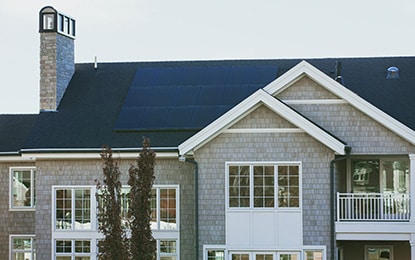Why Solar Power Is a Cost-Effective Energy Solution for Homeowners
Jan 04, 2023
The idea that having solar panels on your house could increase energy costs for your neighbors was a common misconception. However, a new analysis has shown that solar panels actually reduce electricity costs for everyone, even those living nearby.
Solar panels essentially act as an investment in the local utilities by reducing peak demand on the traditional grids, meaning that utilities don’t need to invest as much money into the infrastructure. You are essentially investing in the local utilities by having solar panels connected to the grid.
Calculating Solar Power Costs
Using the discounted cash flow method, you can compare the costs and benefits of a solar system over time. This involves looking at all the costs associated with installing a solar system, such as the installation fee, maintenance costs, and subsidies, and then factoring in the amount of energy expected to be saved over time. You then calculate the system’s net present value (NPV), which is the sum of all the future savings minus the initial costs. If the NPV is positive, solar power makes financial sense.
To evaluate the viability of solar power, a calculation of the levelized cost of electricity (LCOE) is often done instead of using the DCF method. The LCOE for home solar is shown as a cost per kilowatt-hour ($/kWh or ¢/kWh), which is the same format as the electricity bills. This cost is then compared to electricity from the local utility.
Use this equation to calculate the LCOE:
LCOE ($/kWh) = Net Present Value (NPV) of the Lifetime Cost of Ownership ($) / Lifetime Energy Output (kWh)
The useful life of a PV solar module is generally assumed to be 25 to 40 years
The cost of owning something includes the money you spend over time to maintain it. To figure out how much this will cost, you need to consider all the expenses and reduce the total cost to get the net present value. You can then compare this with what you would pay for electricity from the utility company. The relevant price you should focus on is the one that applies when your photovoltaic solar system is producing the most electricity.
Is Solar Power Worth It?
By doing the math, you can calculate the years until a solar system will be cost-effective in terms of savings. Depending on the sunlight hours available in your area and the energy you usually use, the time it takes for the system to pay for itself can range from five to twenty years. If you live in a sunny area and use a lot of energy, you could see returns on your investment in as little as five years.
Ultimately, it is up to the homeowner to decide if solar power is a good investment for them. Although the financial returns may take some time to be seen, the advantages of switching to solar energy are worth considering. If you intend to stay in your house for a long period, and there are subsidies available in your area, then the potential rewards of installing solar power could be substantial. Nevertheless, it is important to weigh the pros and cons before deciding.
Conclusion
Solar power is an excellent, cost-effective energy solution for homeowners. It has several advantages over traditional energy sources, such as lower electricity bills, reduced environmental impact, and increased energy independence. Solar power can be easily installed and maintained, and government incentives are available for those who choose to switch to solar. With all these benefits, it is easy to see why solar power is becoming increasingly popular among homeowners.
Honey Bees Roofing and Solar is a trusted roofing contractor and solar contractor for residential and commercial spaces. The expert team at Honey Bees Roofing and Solar prides itself on delivering the best solar systems in Burleson and the surrounding areas. If you are considering solar power roof installation in Burleson, get in touch with us today! Call us at 817-668-6131 for a free solar consultation.
